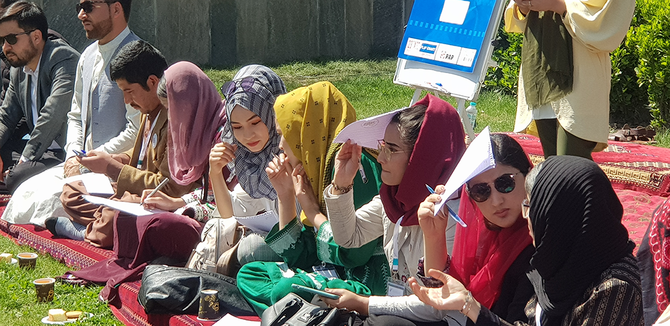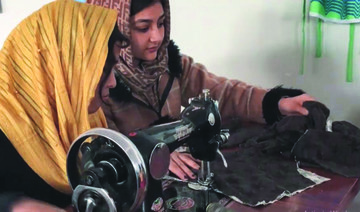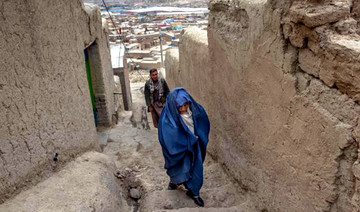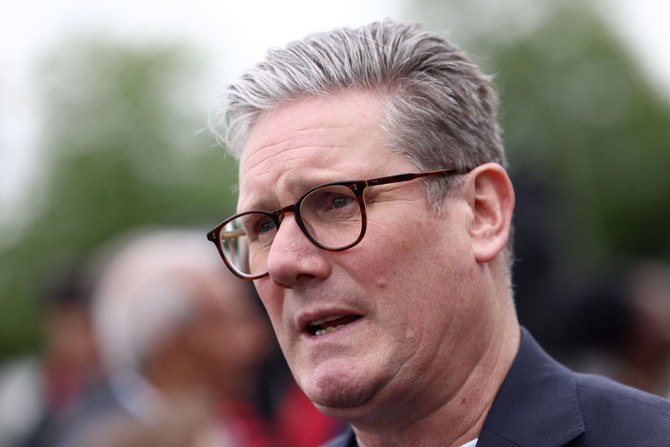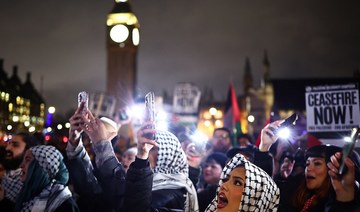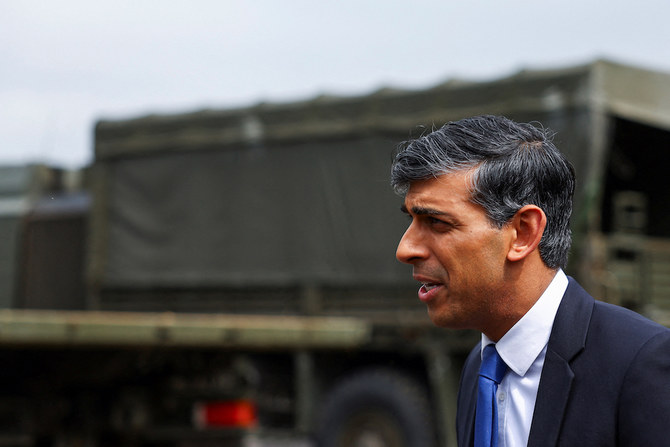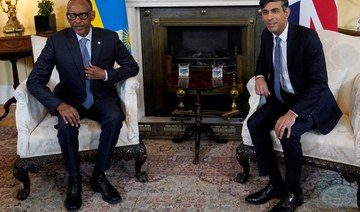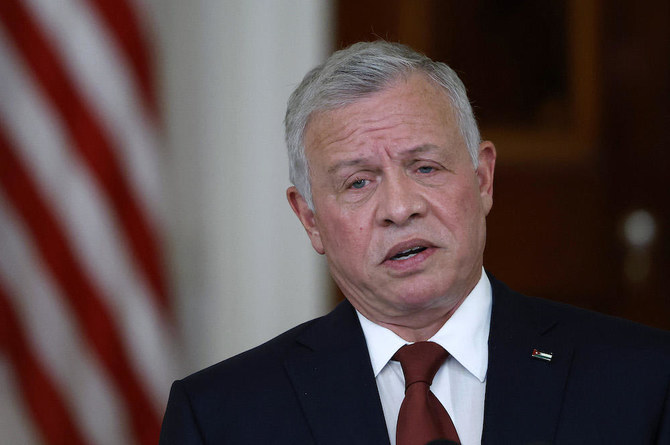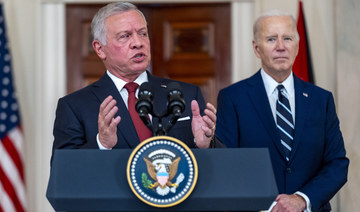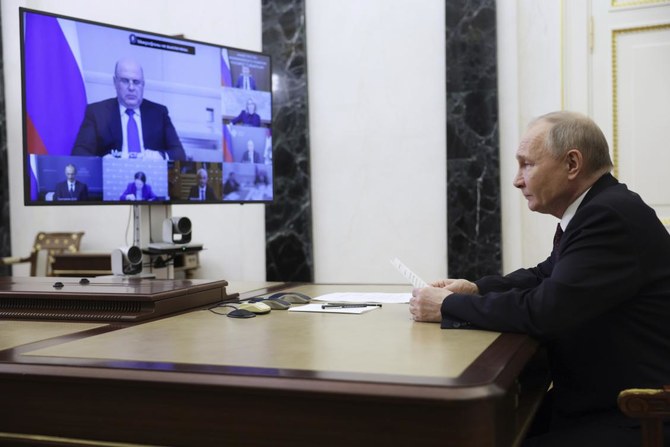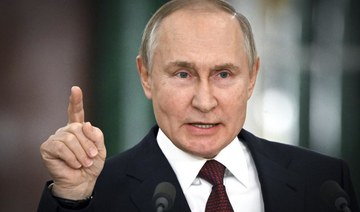KABUL: More than 1,300 representatives from all districts and provinces of Afghanistan met in Kabul on Monday for the largest gathering of Afghan civil society in recent years.
They demanded that their voices be included in the upcoming US-sponsored, Turkey-hosted peace talks, aimed at finding a future roadmap for the war-torn country.
So far only Taliban delegates and government negotiators appointed by Afghan President Ashraf Ghani have taken part in the talks that began in Doha, Qatar, in September last year and are facing a deadlock.
“This country does not belong only to Ghani and the Taliban. Our views, those of the ordinary people of Afghanistan, should also be mirrored in such conferences,” Hajji Hayatullah Hayat, a participant from the Ghazni province, told Arab News.
The one-day event was organized by the Afghanistan Mechanism for Inclusive Peace (AMIP) — an independent body created by a consortium of civil societies and funded by the EU — and brought together clerics, women, war victims, widows, orphans and physically challenged civilians.
“We have tried to bring together diverse voices because the actual victims of the 40 years of war have been these ordinary people, and their voices should be heard,” Moqadas Ahrar, spokesman for the AMIP, told Arab News on Monday.
The participants were split into groups and given questions by the AMIP for discussions during the event held at an ancient garden on the southern fringes of Kabul.
The questions sought their thoughts on the enforcement of a ceasefire between the Taliban and Kabul, the fate of US-led troops in the country, the role of Islam in the constitution of Afghanistan, and challenges that could disrupt the peace talks.
“In our group, people overwhelmingly supported the idea for the total withdrawal of foreign troops from Afghanistan and that both sides should show flexibility for the peace process,” Hayat said.
Foreign troops led by the US have been stationed in Afghanistan since the ousting of the Taliban from power in late 2001. Under a deal signed by the US and Taliban in Qatar in February 2020, the US military is due to completely leave Afghanistan by May. The US has already withdrawn several thousands of its soldiers, but some of its 2,500 troops still remain on Afghan soil.
In an announcement on Thursday, US President Joe Biden said that he could extend the American military presence in the country for “tactical reasons” after the deadline but not beyond a year.
The Taliban retaliated the next day by saying that foreign troops would be driven out of Afghanistan by force if the US failed to meet the deadline.
Mariam Durrani, a participant from Kandahar, said that all members in her group also demanded enforcement of a ceasefire.
“We are the voice of the people who want an immediate ceasefire, and both sides (government and the Taliban) should accept this,” she told Arab News.
While many women participants who had traveled from major cities pushed for women’s rights and greater representation, others demanded an end to the war.
Since the Taliban’s ousting in 2001, Afghan women have regained the right to education, vote and work outside their homes.
Still, it is not an easy place to be a woman, with forced marriages, domestic violence and maternal mortality prevalent across the country, particularly in rural areas.
However, access to public life has improved, especially in the capital Kabul, where thousands of women work, and more than a quarter of parliament is female.
However, many women in urban areas fear a return of the Taliban would deprive them of the liberties they have enjoyed in the past 20 years.
“The real delegates of women and people should be given a chance to participate in future conferences on Afghanistan because they know the agony, pain and suffering of the people,” a participant from eastern Afghanistan, requesting anonymity, told Arab News.
Another woman participant, who also requested not to be named for fear of reprisals, said that Monday’s gathering was short and did not include the real representatives of the people.
“What can you achieve in one day? You spend at least two hours of it for prayers and lunch, which is surely not sufficient to gather what the people want to say. It is a project, a way of earning for some and some a trip to Kabul,” she said.
To break the stalemate in the Doha talks and end Washington’s 20 years of military engagement in the country, Russia hosted a conference on the Afghan peace process earlier this month.
However, similar to the Doha talks, the Moscow meeting had no representation from war victims either, and only one woman had participated in the roundtable discussion.
A larger conference on Afghanistan’s peace is expected to be held in Turkey in the coming weeks.
In a statement on Monday, the AMIP listed key demands for the Turkey talks, some of which were: An inclusive process and an “inclusive outcome”; for an independent civil society mechanism to be integrated into the formal peace architecture; a comprehensive ceasefire peace and for it to be the main agenda of the talks; for the negotiations to start immediately and include the perspective of victims, women and ordinary Afghans; for Islamic values to be maintained as the basis for governance in Afghanistan; for tribal prejudice as well as moral and institutional corruption to be “eliminated”; for development of structures to compensate victims; for the future government to provide security, employment, education and preserve the rights of women and other minorities; and for the complete withdrawal of foreign troops from Afghanistan in a responsible, conditioned and structured manner.
“Many have risked their lives in getting here today, but the magnitude of the situation, and this real opportunity to move toward peace, is such that we all felt it was important to take that risk,” it added.



